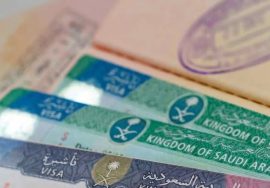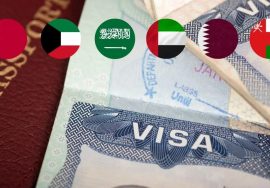
The Pros and Cons of Working in Saudi Arabia: What Expats Need to Know
Saudi Arabia has long been a significant destination for expatriates seeking job opportunities, particularly in industries like oil and gas, healthcare, construction, and education. With its rich cultural heritage, religious significance, and economic opportunities, the Kingdom has attracted workers from around the globe. However, working in Saudi Arabia comes with unique challenges and benefits that every potential expat should consider. Let’s delve into the intricacies of living and working in this dynamic country.
The Appeal of Working in Saudi Arabia
1. Economic Opportunities
Saudi Arabia has been a hub for professionals in various sectors, offering lucrative salaries, especially for those in specialized fields like engineering, medicine, and IT. For many, the tax-free income structure historically made Saudi Arabia an attractive destination.
2. Religious and Cultural Significance
For Muslims worldwide, Saudi Arabia—home to the two holiest cities of Islam, Mecca and Medina—is a dream destination. The chance to live and work in proximity to these sacred sites is a powerful motivator for many.
3. Modernization and Vision 2030
Under its Vision 2030 initiative, Saudi Arabia has embarked on transformative changes aimed at diversifying the economy and modernizing society. These include:
-
Empowering women (e.g., allowing them to drive and join the workforce).
-
Introducing entertainment options like concerts and sporting events.
-
Boosting foreign investments and creating more job opportunities.
Challenges of Working in Saudi Arabia
1. The Saudization Program
The government’s Saudization initiative prioritizes employing Saudi nationals in various sectors, often leading to reduced job opportunities for expatriates. Renewing residency permits (Iqama) is now more strictly monitored, creating job insecurity for many expats.
2. Cost of Living
While Saudi Arabia was once considered a cost-effective place to live, the introduction of a 15% VAT and rising living costs have made it comparable to some European countries. Expats must carefully budget to maintain their lifestyle.
3. Discrimination Based on Nationality
Expats from Western countries often enjoy higher salaries and better working conditions compared to those from South Asian or African nations. This disparity can lead to frustration and feelings of inequality among workers.
4. Limited Career Growth
Expats are often restricted from holding high-level management positions due to legal and cultural barriers. This can make long-term career progression challenging for foreign professionals.
Living Conditions and Social Dynamics
1. Cultural Adaptation
Saudi Arabia is deeply rooted in Islamic traditions, and expats are expected to respect local customs and laws. While modernization has relaxed some norms, understanding and adhering to cultural sensitivities remain essential.
2. Workplace Environment
The workplace culture in Saudi Arabia can vary significantly between companies. While multinational corporations often follow global standards, local firms may have traditional hierarchies and practices that require adjustment.
3. Social Integration
Building friendships with locals can be challenging for expats, as cultural and linguistic differences may create barriers. However, joining expat communities can provide support and a sense of belonging.
Key Considerations for Aspiring Expats
-
Research Your Employer: Before accepting a job offer, investigate the company’s reputation and employee policies. Reliable reviews and recommendations can help you avoid potential pitfalls.
-
Understand Contract Terms: Carefully review your contract, including salary, benefits, housing allowances, and leave policies. Ensure clarity on end-of-service benefits and termination conditions.
-
Plan Finances: With rising living costs, it’s essential to budget wisely and plan for expenses like rent, transportation, and education if relocating with family.
-
Prepare for Cultural Adjustment: Familiarize yourself with Saudi customs, dress codes, and social norms to ensure a smoother transition.
Conclusion: Is Working in Saudi Arabia Worth It?
Deciding to work in Saudi Arabia is a highly personal choice that depends on your career goals, cultural adaptability, and financial priorities. While the Kingdom offers unique opportunities, particularly for Muslims and professionals in specific industries, it also presents challenges such as limited career growth for expats and rising costs of living.
By thoroughly researching your options, understanding local laws, and preparing for cultural integration, you can make the most of your experience in Saudi Arabia. Whether you’re seeking spiritual fulfillment, financial growth, or professional development, the Kingdom has much to offer—but it’s not without its complexities.
Similar Links:








